
"Crazy Little Thing Called Love" is a song by the British rock band Queen. Written by Freddie Mercury in 1979, the track is included on their 1980 album The Game, and also appears on the band's compilation album Greatest Hits in 1981. The song peaked at number two in the UK Singles Chart in 1979, becoming the group's first number-one single on the Billboard Hot 100 in the US in 1980, remaining there for four consecutive weeks. It topped the Australian ARIA Charts for seven weeks. It was the band's final single release of the 1970s.

Hindu Love Gods is the only album by American band Hindu Love Gods, which was released in 1990. The album was recorded around the same time as Warren Zevon's album Sentimental Hygiene, for which Zevon had enlisted Bill Berry, Peter Buck and Mike Mills of R.E.M. as players. The musicians also recorded this set of songs, mainly cover versions of old blues tunes, reputedly during late-night drunken recording sessions, not originally intending them for release.

Hindu Love Gods was an American rock band that was, in essence, an occasional side project of members of R.E.M., with Warren Zevon and Bryan Cook.
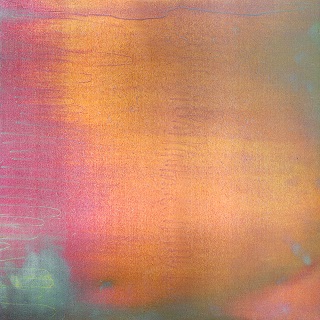
"Bizarre Love Triangle" is a song by English rock band New Order, released as a single in November 1986 from their fourth studio album, Brotherhood (1986), which reached the top five on the US Hot Dance Music/Club Play Singles chart, and No. 5 on the Australian ARIA Charts in March 1987. It failed to enter the top 40 of both the UK Singles Chart and the US Billboard Hot 100; however, a new mix included on The Best of New Order was released in 1994 and charted at No. 98 on the Hot 100. In 2004, the song was ranked No. 204 on Rolling Stone's "The 500 Greatest Songs of All Time."
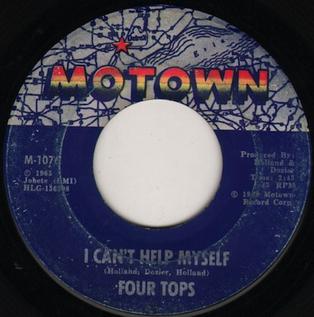
"I Can't Help Myself" is a 1965 song recorded by the Four Tops for the Motown label.

"Lovesong" is a song by English rock band the Cure, released as the third single from their eighth studio album, Disintegration (1989), on 21 August 1989. The song saw considerable success in the United States, where it reached the number-two position in October 1989 and became the band's only top-10 entry on the Billboard Hot 100. In the United Kingdom, the single charted at number 18, and it peaked within the top 20 in Canada and Ireland.

"Would?" is a song by Alice in Chains, written by guitarist and vocalist Jerry Cantrell as a tribute to his friend Andrew Wood, lead vocalist of Mother Love Bone, who died in 1990. Cantrell sings the verses of the song, while Layne Staley sings the chorus.
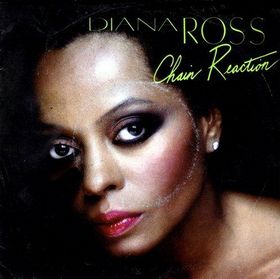
"Chain Reaction" is a song by American singer Diana Ross, released on November 12, 1985, as the second single from her sixteenth studio album, Eaten Alive (1985). The song was written by the Bee Gees and contains additional vocals from Barry Gibb. Sonically, "Chain Reaction" is an R&B and dance-pop song. According to the Gibbs' biography, the brothers had initial reservations about offering the song to Ross in case it was too Motown-like for her.
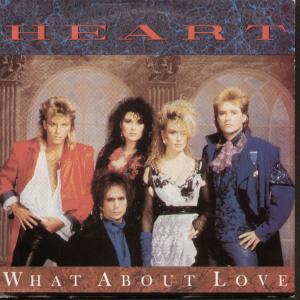
"What About Love" is a song originally recorded by Canadian rock band Toronto in 1982. It was later recorded by American rock band Heart in 1985 and was released as the first single from the band's self-titled album, Heart. The band's "comeback" single, it was the first Heart track to reach the top 40 in three years, and their first top 10 hit in five. The song was also their first hit single on their new record label, Capitol Records. Grace Slick and Mickey Thomas, co-lead vocalists of Starship at the time, provide additional background vocals on the song.

Georgia Satellites is the first album released by the Georgia Satellites. It contains their biggest hit, "Keep Your Hands to Yourself", and another minor hit, "Battleship Chains," written by Terry Anderson. It also contains a cover of "Every Picture Tells a Story," written by Rod Stewart and Ron Wood. Most of the other songs were written by lead singer/rhythm guitarist Dan Baird, except "Red Light," which he co-wrote with Neill Bogan, and "Can't Stand the Pain," written by lead guitarist Rick Richards, who also takes lead vocal on the tune. The album was a commercial success and was certified Gold by the RIAA in February 1987 and then Platinum on August of the same year.
"Love Hurts" is a song written and composed by the American songwriter Boudleaux Bryant. First recorded by the Everly Brothers in July 1960, the song is most well known from the 1974 international hit version by Scottish hard rock band Nazareth and 1975 Top 5 hit in the UK by English singer Jim Capaldi.
"The Chain" is a song by British-American rock band Fleetwood Mac, released on their 1977 album Rumours. It is the only song from the album with writing credits for all five members.

"She Believes in Me" is a song recorded by American country music singer Kenny Rogers. It was released in April 1979 as the second single from his 1978 album The Gambler. The song was written by American singer-songwriter Steve Gibb who first released his version as a 7" single in 1978. A version by T. G. Sheppard appears on his 1978 album Daylight, released a month before Rogers' album.

"Glory of Love" is a 1986 song performed by Peter Cetera, which he wrote and composed with his then-wife Diane Nini and David Foster. The song was recorded by Cetera shortly after he left the band Chicago to pursue a solo career. Featured in the film The Karate Kid Part II (1986), it was Cetera's first hit single after he left the band, reaching number one on the Billboard Hot 100, and it was included on his album Solitude/Solitaire (1986), which Michael Omartian produced.
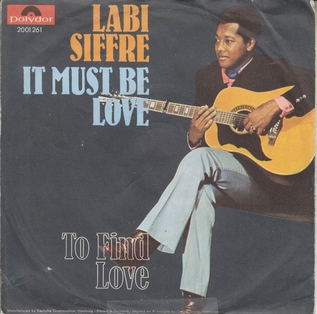
"It Must Be Love" is a song written and originally recorded and released in 1971 by English singer Labi Siffre on his 1972 album Crying Laughing Loving Lying. It was also recorded by ska/pop band Madness in 1981.

"Good Times" is a song by the Australian rock band the Easybeats, written by George Young and Harry Vanda. It was released in June 1968 on their album Vigil, and as a single in July 1968 through Parlophone. It features guest vocals by Steve Marriott of Small Faces, and piano by Nicky Hopkins. The original Easybeats recording reached #22 in Australia. When broadcast by BBC radio, it was reportedly heard by Paul McCartney on his car radio; McCartney apparently rang the station immediately to request a repeat playing.
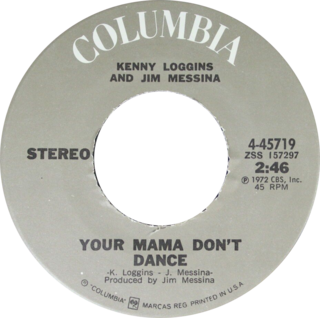
"Your Mama Don't Dance" is a hit 1972 song by the rock duo Loggins and Messina. Released on their self-titled album Loggins and Messina, it reached number four on the Billboard pop chart and number 19 on the Billboard Easy Listening Chart as a single in early 1973.

"He Will Break Your Heart", is a song originally performed and co-written by Jerry Butler. It was a top-ten hit in 1960.

"Sometimes Always" is a song by the Scottish alternative rock group the Jesus and Mary Chain and the first single from the group's album Stoned & Dethroned. Written by William Reid, the song is a duet between Jim Reid and Mazzy Star's Hope Sandoval. The song was a moderate commercial hit in the UK while also making some noise on the alternative circuit in the US. It has since seen critical acclaim as one of the best songs from the Stoned & Dethroned album.

Black Gives Way to Blue is the fourth studio album by the American rock band Alice in Chains, released on September 29, 2009, on the 17th anniversary of the release of their second album, Dirt. It is their first record without original lead singer Layne Staley, who died in 2002, and their first album with new vocalist and rhythm guitarist William DuVall sharing vocal duties with lead guitarist/vocalist Jerry Cantrell, who sings lead vocals on most of the songs. The title track is a tribute to Staley featuring Elton John on piano. This is the first Alice in Chains album released on Virgin Records and their first venture away from Columbia, who handled all of their previous releases. The album debuted at No. 5 on the Billboard 200, and was certified gold by the RIAA on May 26, 2010, with shipments exceeding 500,000 copies in the U.S. and over 1 million copies sold worldwide. "Check My Brain" and "A Looking in View" were both nominated for the Grammy Award for Best Hard Rock Performance in 2010 and 2011, respectively. Black Gives Way to Blue won Revolver magazine's Golden Gods Award for Album of the Year in 2010.

















